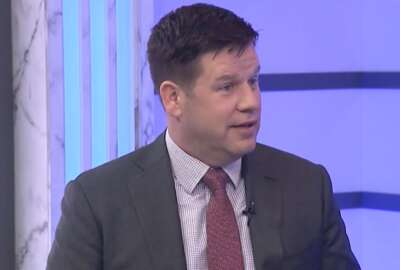The Biden administration is calling on agencies to take a closer look at the burden individuals go through when applying for federal services.
A memo issued Wednesday by the Office of Management and Budget, as well as its Office of Information and Regulatory Affairs, directs agencies to identify and reduce burdens associated with applying for and maintaining eligibility for public benefits programs, with a focus on reducing those barriers for underserved communities.
The memo outlines specific steps agencies should take to review information collection requests to the public, as part of burden analyses they already conduct under the 1995 Paperwork Reduction Act.
OMB is directing agencies to accurately reflect the time individuals spend gather records need to prove eligibility, travel time to submit documents, or even waiting to speak with agency personnel.
“Every step in the process represents a burden that could result in individuals or entities justifiably becoming too discouraged to complete the process and thus not receiving public benefits for which they are legally eligible,” the memo states.
This guidance falls under President Joe Biden’s executive orders last year to transform customer experience in government, advance racial equity and support for underserved communities and create a White House Gender Policy Council.
The customer experience executive order specifically directs agencies to better understand the “time taxes” or burdens that individuals go through to access federal services.
Agencies, as part of this memo, are directed to also understand “learning costs,” including the time and effort individuals researching their eligibility for federal services, as well as learning what documents they’ll need to prove their eligibility.
In cases where state, local or tribal governments collect information on behalf of federal agencies, such as unemployment insurance, the memo directs all parties to ensure that the information collection burdens are reliably documented.
Agencies are also being told to investigate “sources of psychological costs,” such as discomfort, stress or anxiety an individual might experience trying to meet this data collection.
OMB tells agencies to proactively consult with individuals these programs are meant to serve, as well as advocacy groups, subject-matter experts and front-line employees.
The memo stresses that agencies reach out to a wide variety of individuals, communities and groups that cut across different demographic groups and geographic areas.
“Such engagement and consultation can help the agency improve the accuracy of time estimates, gain additional perspectives on any challenges in the information collection process, and solicit solutions for streamlining information collections,” the memo states.
The Paperwork Reduction Act directs agencies to estimate and justify the time it takes for individuals to submit information agencies ask for. Those estimates need to include the expected number of respondents, the frequency of response and the hours spent per response.
The memo outlines methods of outreach that are not subject to PRA, such as conducting listening sessions, asking non-standardized questions about a particular agency process or issue, and observing how individuals go through the process of applying.
Agencies that consult with fewer than 10 people are generally not subject to the PRA.
Beyond that, OMB does offer some flexibilities under the PRA. Agencies can seek a “generic clearance” from OIRA that allows them to collect certain information without requiring 60-day and 30-day public notices.
OIRA, for example, granted the Census Bureau “emergency” approval to conduct ongoing Household and Small Business Pulse Surveys in the early stages of the COVID-19 pandemic to gauge the economic and health impact the pandemic has had on the country. Those pulse surveys remain ongoing.
The memo also directs agencies to take steps to reduce the burden on individuals seeking service. The memo directs agencies to work with OIRA in determining which programs or benefits are the best to prioritize.
OMB will track improvement based on how well agencies simplify requests for information, enhance communication and outreach to the individuals seeking these services, reduce these burdens on underserved communities and implement leading design practices to improve forms.
“More completely and transparently articulate burdens and associated costs experienced by the public when accessing essential public when accessing essential public benefits programs,” the memo states.
The memo also directs agencies to work together to collect information about certain populations where it makes sense.
The IRS, for example, conducts the Individual Taxpayer Burden Survey to improve estimates of the time and money that taxpayers spend to follow federal tax rules.
“To the extent that the same populations participate in programs across different agencies, agencies could consider co-sponsoring surveys or studies to examine opportunities to reduce cumulative burdens of applying to multiple programs,” the memo states.
Copyright
© 2024 Federal News Network. All rights reserved. This website is not intended for users located within the European Economic Area.




